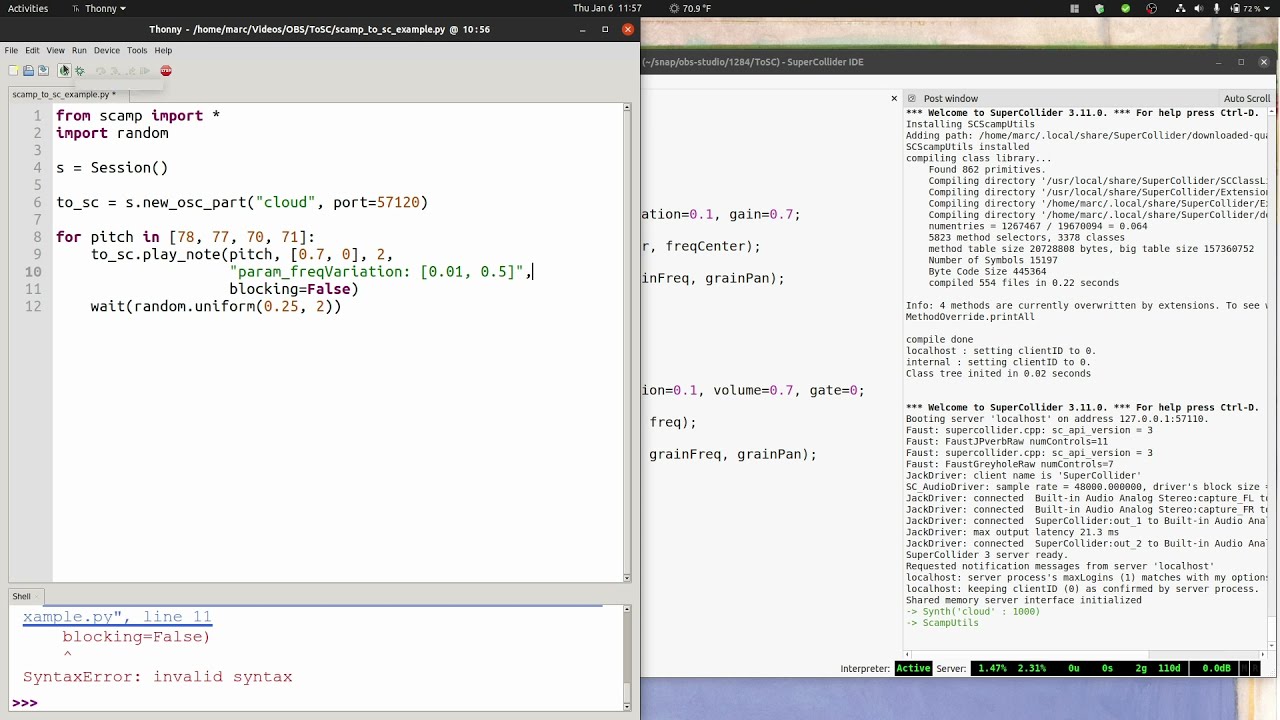Hi Marc,
Thanks for the tutorial! I am very curious of exploring this and made my very simple own code but something seems not to work : I created a synth in SC under ScampUtils and I would like some parameter to move along with the music that is composed in scamp. But the “param_” option seems not to affect my args in SuperCollider. Here are the codes:
The SC synth where I want to control the args curvVar (the bend of the curve in the envelope) and lineEnd (the end of the Xline applied to the filter):
ScampUtils.instrumentFromSynthDef(
SynthDef(“synth-interpolate”, {
arg freq=640, volume=0.7, gate=0, curvVar=0.01, lineEnd=2;
var snd, env, newFreq;
env = EnvGen.kr(Env.perc(0.01, 0.5, 1, curve:curvVar), doneAction:2);
newFreq = Saw.ar(freq:freq);
snd = RLPF.ar(newFreq, XLine.kr(10000, end:lineEnd, dur:0.5), rq:1);
snd = snd * env;
Out.ar(0, snd);
})
)
If I got well from the tutorial the Scamp way to change the parameters curvVar (say to -5) and lineEnd (say to 0) is as follows:
bass = s.new_osc_part(“synth-interpolate”, port=57120)
bass.play_note(31, 1, 1, “param_curvVar: -5”, “param_lineEnd: 0” )
but whatever I put in Scamp under param_curvVar or param_lineEnd does not affect the starting choice I make in the arg in the SynthDef: the value I put there is the only thing that matters at the sound output! On the other hand, changing the pitch does affect the frequency.
I followed closely what you do in the tutorial and I do not understand what is going wrong there.
Sorry to bother I hope it’s not a too silly problem.
Thks! Marcello
